20 kwiecień 2008
Silent incompetents
If we look at that question through Nice and the European Constitution then I am really worried. The strong countries of Europe seem to have forgotten about the principle of subsidiarity and have begun to think about their own interests. On the other hand, if Europe denies truths so obvious as the role of Christianity in the cultural identity of Europe, then my natural optimism is transformed into pessimism about the further development of our continent. I refuse to run as a candidate for the European Parliament because it is time young people to get involved – says Senator Dorota Simonides.


Senator Dorota Simonides
DOROTA SIMONIDES
Senator in the Senate Block 2001,
from 1992 – 2002
participant in the work of OBWE
Damian A. Zaczek:
Senator, is it still possible for Poles to elect demagogues to the European Parliament?
DOROTA SIMONIDES: Even worse! They can elect silent incompetents. That’s why we should do everything in order to place people there who can represent us with dignity, those who are competent, know foreign languages and Europe’s problems. Individuals who are not afraid of a brutal election campaign. Supposedly, every Polish deputy in the EP should have an awareness that he is an ambassador of Poland. Therefore, he should think about his own region, the Polish nation and Europe.
How can we reconcile national and European interests? Will we escape the Polish backwater and be able to play on the European team?
I think that we will be able to think in European terms because Poles have experience in many European organizations. From my observations in work for the Organization for Security and Cooperation in Europe, I can say that Poles – regardless of what political leaning they originate from – speak in terms of Europe in general, for example, concerning human rights and fighting terrorism, with one language. However, where we will be required to defend the Polish raison d-état, we have to be able to argue and defend our own without forgetting that Polish deputies are a part of the EP and as such are responsible for all of Europe.
What do you fear the most about the next elections?
Low voter turnout and poor campaigns. The voter won’t feel certain about who to choose. He also won’t know what the EP is and why we are choosing our representative to that body. Society’s knowledge is too small on that subject. Few know what are the goals and tasks of the EP. Moreover, these elections were supposed to lead to greater ties between the EP and citizens. The EP was supposed to be representative of a civil society. Seemingly only regional voters will know who to vote for because their districts are too large and people there won’t know each other. The second fear are fragmented parties who will put forth their candidates. The more there are the worse it will be for voters and the candidates themselves. Instead of talking things out and integrating in common election committees, parties prefer to go to the elections alone. The victory of a certain party is still more important that a good choice for Poland.
Will elections to the EP be a test for Polish parliamentary elections?
I am certain that they will. However, in the case of the EP it is necessary to let the national interests of Poland prevail. Each party talks a lot about it and when there is a chance to realize that goal, there are no results. The right doesn’t know how to agree and is fragmented so the voter is disoriented. SLD is going through an internal crisis while populist Samoobrona is searching feverishly for candidates to the EP. In established democracies there are generally four significant parties and not 25, like it is here. Theoretically the most deputies to the EP may be from the Citizen’s Platform or Samoobrona. Regarding this I have my doubts whether parliamentarians from those two parties will know how to speak a common language. However, the ball is in the court of the voters. They will decide who they want to represent them in Europe. We all know how the Germans and French fight for their interests in the EP. Maybe we can learn it as well?
Where is Europe headed?
If we look at that question through Nice and the European Constitution then I am really worried. The strong countries of Europe seem to have forgotten about the principle of subsidiarity and have begun to think about their own interests. On the other hand, if Europe denies truths so obvious as the role of Christianity in the cultural identity of Europe, then my natural optimism is transformed into pessimism about the further development of our continent. Throughout Europe we celebrate Christmas and Easter, so we are rooted in Christianity and we cannot deny it and claim – as the French do – that everything began with the Enlightenment. The second fear concerns Islamic fundamentalism and the related issue of terrorism. I am afraid of warped, warlike Islam. Around the world we can observe the expansion of this religion and before Europe may soon stand the greatest challenge of the 21st century. I am afraid that it will be too weak and too divided.
Do you intend to run as a candidate for the EP?
No. I refused because it is time to withdraw from politics and encourage young people to get involved.
Thank you.




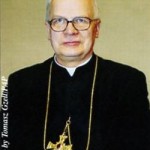











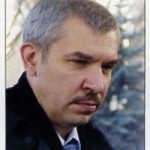



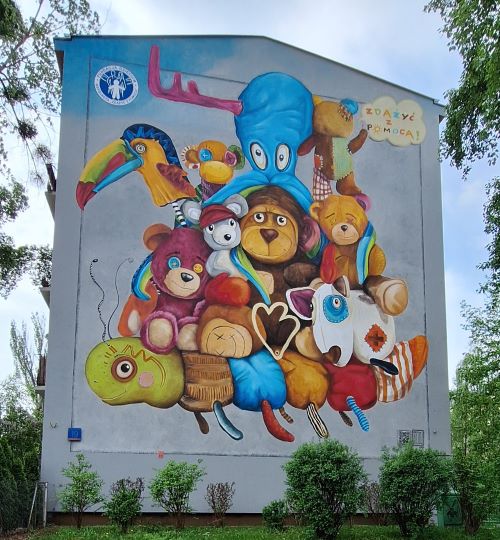

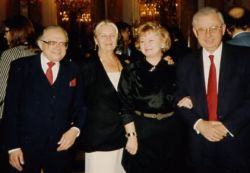
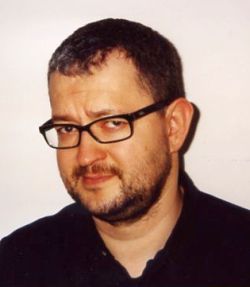



CATHOLIC CHURCH
Continuation and breakthrough
A little over 90% Poles declare themselves to be Catholic. However, 5% of believers do not attend church at all. 53,9% of believers declared they were living in accordance with the commandments of the Church. więcej...